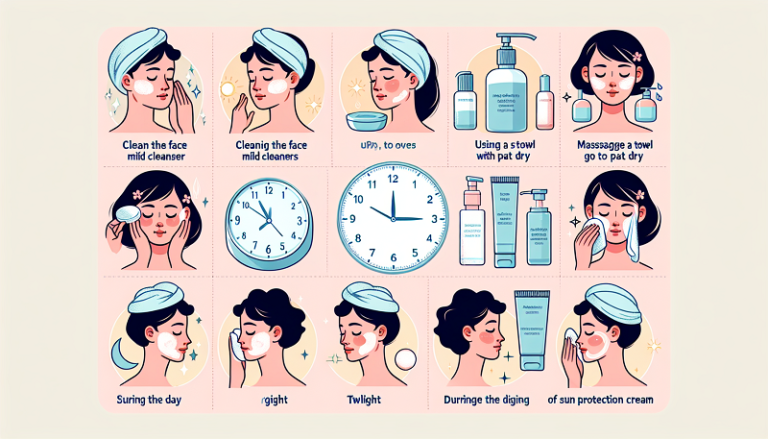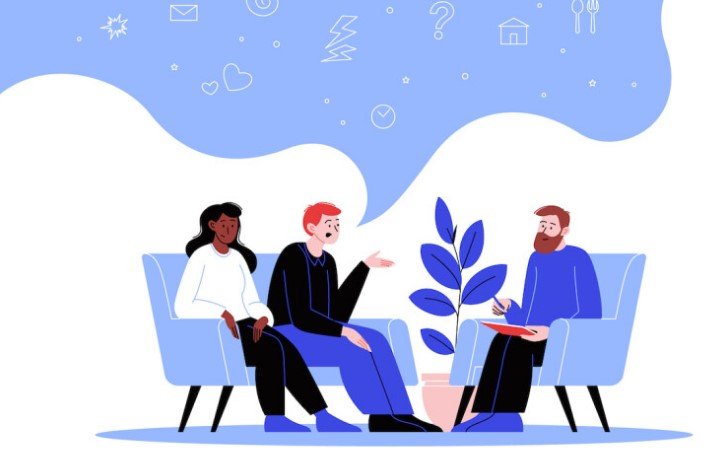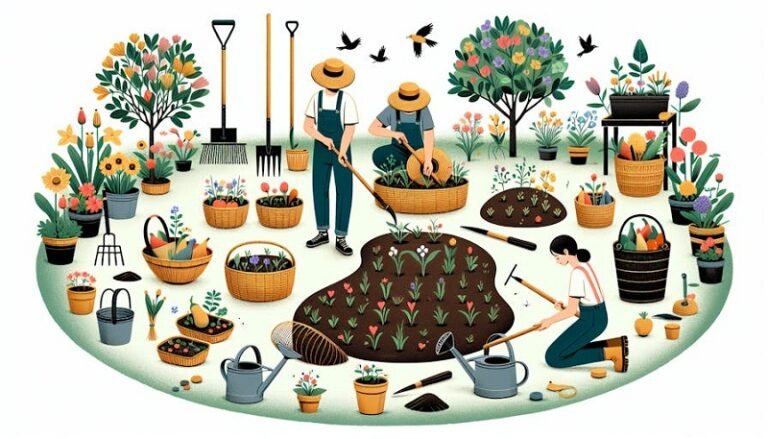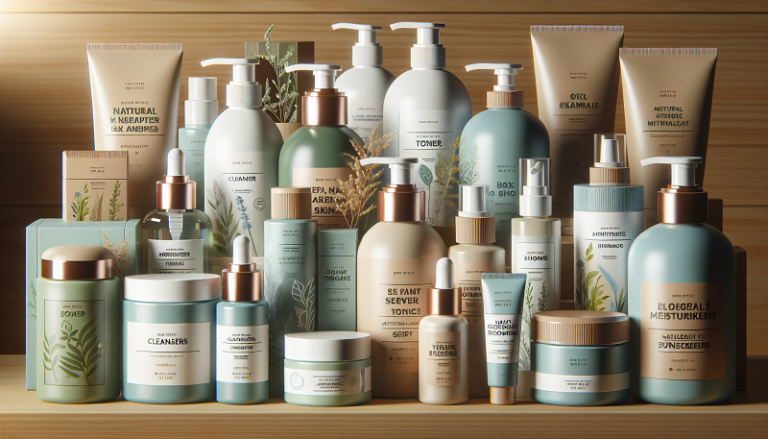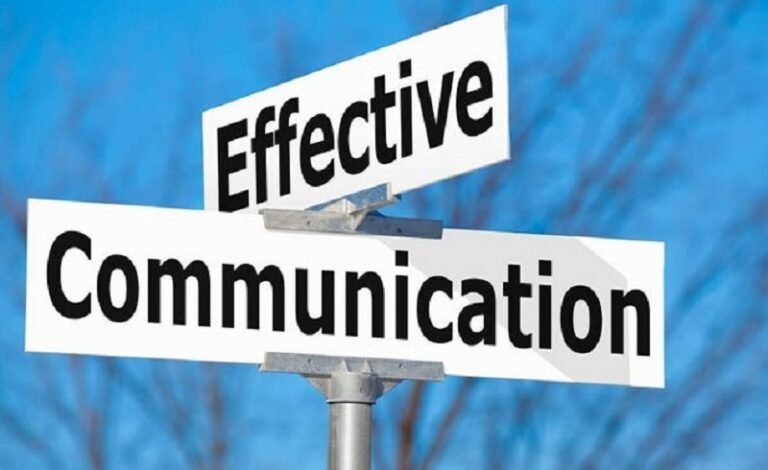Nurturing Deep Connections: My Journey in Building Trust in Relationships
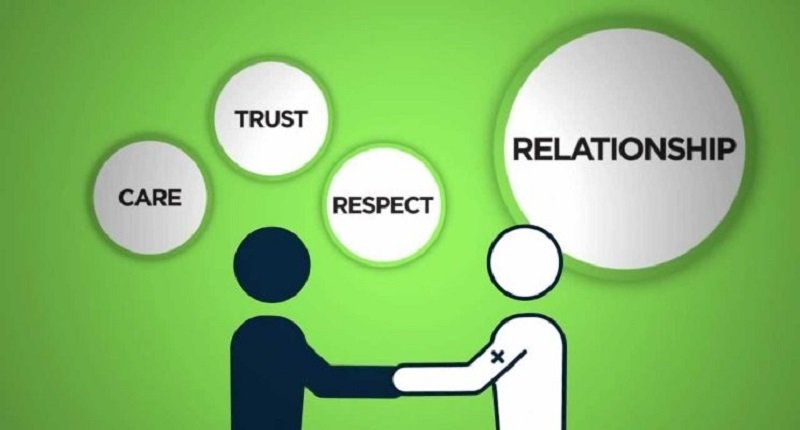
Building Trust in Relationships
Building trust in relationships is something I’ve come to really appreciate. Trust is like the glue that holds a good partnership together, making both people feel secure and valued.
Importance of Trust
Trust is the bedrock of any successful relationship. It lays the groundwork for open chats, understanding, and that comforting feeling of security (River Oaks Psychology). When you trust someone, you’re showing your vulnerable side with the hope and belief that they’ve got your back, just like you have theirs (Medium). In my own experience, making a commitment to be upfront and honest with each other is key to building that trust (mindbodygreen).
Roles of Communication
You can’t talk about trust without talking about communication. The two go hand in hand and are essential for any good relationship (Healing Collective Therapy). Humor, common goals, and, above all, trust are part of good communication.
From my personal journey, I’ve found that being a good listener and thinking before I speak can really make a difference. This approach not only helps unite a couple but also boosts conflict-solving skills and grows trust. If you’re curious, checking out different communication styles in relationships can offer more insights.
| Aspects of Effective Communication | Benefits to Relationship |
|---|---|
| Active Listening | Boosts understanding on both sides |
| Thoughtful Responses | Shows respect and care |
| Open Dialogue | Creates trust and honesty |
| Humor and Shared Goals | Solidifies connections |
When communication is effective, it transforms the relationship. Trust is largely built on how well partners talk and listen to one another. For more guidance on improving relationship communication skills and conflict resolution in relationships, have a look at these resources—they offer some great tips for nurturing a solid relationship.
Growing trust in a relationship doesn’t just happen overnight. But with continuous effort—through honest conversations and keeping the lines of communication open—it’s definitely possible to build a lasting, supportive partnership.
Elements of Trust
Trust isn’t built overnight; it’s a bit like baking bread. You need the right ingredients in the right amounts. From my own adventures in understanding what makes relationships tick, I’ve realized some core things are necessary for the dough of trust to rise properly.
Vulnerability and Openness
Alright, let’s get real. Being vulnerable is terrifying. It’s like walking into a room with an embarrassing childhood photo plastered on the wall. But, believe me, it’s the good stuff that makes relationships more genuine. When I let my guard down, I’m not just opening up a can of worms, I’m inviting more meaningful connections. A wise article on Medium backs me up: trust means taking a leap of faith in someone else’s intentions. By being my quirky, unpolished self, I show my partner I’m willing to take that leap, hoping they’ll jump with me.
| Aspect | Impact on Trust |
|---|---|
| Vulnerability | Deepens emotional bond |
| Openness | Keeps the conversation real |
Honesty and Transparency
Honesty: it’s the glue holding every solid relationship together. No one likes having their eyebrows singed with lies. Sharing the truth isn’t just about avoiding drama—it builds a fortress of communication and trust stronger than the Great Wall. FasterCapital points out that honesty is trust’s trusty base. If I’ve learned anything, it’s that laying things bare heads off misunderstandings before they snowball. No trust, no ride on the healthy relationship train.
Wanna see how being straight-up can work wonders? Check out our piece on effective communication in relationships.
Empathy and Compassion
The human superpower isn’t flying or invisibility—it’s empathy. Seriously, it’s the secret sauce in the recipe of trust. When I make an effort to really get what my partner is feeling, we manage to face challenges without getting knocked down. Just like a hug, empathy says, “I see you, I get you.” Our friend Medium even suggests that trust is all about believing others care about our well-being.
Empathy isn’t always about grand gestures. On off days, it looks like hearing them out over burnt toast in the morning. Compassion is leveling up empathy—it’s wanting to ease their bad day blues. It turns your relationship into a cozy safe space, like a fluffy blanket fort.
Want to keep the peace and solve tiffs with heart? Dive into conflict resolution in relationships and watch empathy at work.
By combining vulnerability, honesty, and empathy, I mix a cocktail of trust that even James Bond couldn’t resist. These unshakeable pillars make relationships not just last, but thrive. For tips on upping your communication game, see improving relationship communication skills.
Factors Messing with Trust
On my road to figuring out how to trust people without getting burned, I’ve hit a few bumps that really made me think about what makes or breaks trust. Let me spill the beans on how my past, letdowns, and those heart-to-heart connections have changed the way I see trust.
Life’s Baggage
Trust isn’t something we just hand out like free samples; it’s colored by our past. If you’ve had a bunch of decent encounters before, you’re more likely to trust your new buddy faster than you can say “BFF.” On the flip side, if the past let you down, it might take a while before that trust meter goes up again.
| Influence | Nice and Sunny | Stormy Weather |
|---|---|---|
| Past People Stuff | Trust Jackpot | Trust Woes |
| Who I Am | Self-Assured Trust | Trust Doubts |
| Life’s Rollercoaster | High Hopes | Pessimism Central |
By connecting my past adventures to how I trust, I’ve begun to get whether my antics in relationships are all rainbows or thunderstorms.
Letdowns and Heartaches
The hard knocks of betrayal can feel like a sucker punch when it comes to trusting again. Trust demands I’ll open up and expect you to have my back, which isn’t an easy thing to do after getting the rug pulled from under. But I’ve found that tackling these letdowns by myself heals wounds over time. And yeah, trust-building games don’t hurt either; they’ve been my secret weapon for trusting more easily.
Connection is Key
Think of emotional bonds like duct tape for trust in relationships; they’re what make it stick. These bonds grow when you do stuff together, chat openly, and honestly get each other. When I make this happen, my trust-o-meter goes way up.
Whether it’s staying up late chatting or showing you care when it counts, all these moments have helped me keep trust rock solid. When those bonds are thick and juicy, conflicts aren’t as tough to solve, and trust becomes resilient.
Jump on over to effective communication in relationships if you want more on why talking it all out is so vital for trust.
Trusting others isn’t as simple as flipping a switch. Reflecting on what’s shaped my trust habits — from past chapters, old heartaches, to those glue-like emotional bonds — continues to open my eyes. Dive into improving relationship communication skills if you’re game for building deeper ties.
Rebuilding Trust
Rebuilding trust in a relationship isn’t a cakewalk, but it can be a beautiful journey if you’ve got the patience and the grit to make it happen. Let me take you through my own experiences and some handy tips that have worked wonders for me.
Time and Consistency
From where I stand, time and consistency are like the bread and butter of building trust in any meaningful relationship. You don’t sprinkle some magic dust and poof—trust is back. Nope, you gotta water it like a plant, little by little.
Being dependable turned out to be my golden ticket. When I said I’d do something, I stuck to it. And guess what? Over time, these little promises stacked up to build a rock-solid foundation of trust. You know, actions speak louder than words.
Common Ground and Shared Experiences
Finding mutual likes and having those “we” moments—now that’s the stuff that really connects folks. My partner and I found ourselves bonding over simple pleasures, like a shared hobby or a spontaneous road trip. It was in these moments that we made new memories, ones that helped mend the cracks in our relationship.
Ever tried trust exercises? It’s like playing a game where you communicate openly and drop a few shields. These activities can do wonders for creating empathy and understanding—a kind of glue for your connection.
Trauma-Informed Approaches
Nobody’s perfect, and that means past baggage can sometimes sneak into present relationships. Recognizing this changed the game for us. By embracing trauma-informed methods, we learned to tread gently on past experiences, like an elephant tiptoeing through a china shop. It’s all about understanding how those old wounds affect today’s trust.
I tried really hard to approach interactions like I was wrapping up a fragile package—lots of care and padding. Being patient, really listening—those things mattered more than you’d think.
Additional Resources
If you’re interested, there are heaps of articles out there on communication, dealing with conflict, and boosting relationship skills. They offer more ways to build and strengthen trust in your connections. So dive in, soak up the wisdom, and watch your relationships flourish.
Honesty in Relationships
Foundation of Trust
When it comes to creating trust in relationships, honesty is like a rock that keeps everything else from crumbling. Without it, building a strong bond feels somewhat tricky. I’ve realized that being open with another person is crucial because it lets me relax into my real self, leading to transparency and mutual respect. This promise of keeping it real fortifies trust, ensuring the interactions are genuine and solid.
Trust is the backbone of any healthy relationship, whether it’s with a partner, family, or at work. For me, deciding to be upfront over and over is a must. It’s my first move towards securing trust in all my relationships.
Different Types of Lies
Getting a handle on the different kinds of lies was eye-opening. It helps me tackle the murky waters of truth and deceit. Here’s a breakdown of the various fibs:
- White Lies: The so-called harmless ones. Told to spare someone’s feelings.
- Omission Lies: It’s all in what you leave out. The truth isn’t all there.
- Deceptive Lies: These whoppers are meant to mislead or fool someone.
- Compulsive Lies: Some folks can’t help but spin yarns, even without a reason.
- Malicious Lies: These are the nasty ones, meant to hurt or fool someone on purpose.
By knowing these lies, I’m better at keeping relationships honest and spotting deceit in others and myself.
Here’s a quick look at how these whoppers affect relationships:
| Type of Lie | Description | Impact on Relationship |
|---|---|---|
| White Lies | To dodge hurting someone’s feelings | Minimal impact but can erode trust if done a lot |
| Omission Lies | Skipping crucial info | Can really shake things up, trust-wise |
| Deceptive Lies | Aimed to hoodwink | Big-time trust breaker |
| Compulsive Lies | Lying for no apparent reason | Eats away at trust like nobody’s business |
| Malicious Lies | Lies with intent to harm | Devastating and often beyond repair |
Understanding trust’s essence and the tricky stuff behind lying has been vital in building deeper connections. Gaining insight into these elements helps me forge stronger and more honest relationships, making every interaction matter.
Overcoming Fear of Honesty
Opening up in a relationship might feel like you’re standing in front of a crowd in your pajamas, but it’s the bedrock for building trust in relationships. Figuring out why honesty’s giving you the jitters and learning to embrace vulnerability can work wonders for making your bond unshakeable.
Identifying Root Causes
When honesty felt like a mountain to climb in my relationship, I took a step back to figure out what was really freaking me out. Turns out, it usually boiled down to:
- Fear of rejection: No one wants to be the only one at the dance, right?
- Fear of conflict: Avoiding a mess is easier than cleaning it up.
- Bad times in the past: Betrayals can hit like a ton of bricks.
- Low self-esteem: It’s hard to be honest when you’re not even sure of yourself.
Facing these fears head-on was like turning the lights on after watching a scary movie. It called for a long look at my own hang-ups and a will to confront some prickly truths. With this newfound clarity, I knew what had been holding me back and where to patch the bridges I’d meant to build.
Practicing Vulnerability
Putting yourself out there is scary—I get it. But it’s key to making real connections, the kind that don’t crack under pressure. Here’s what got me through:
- Aim for the silver lining: I nudged myself to think about all the good that honesty could bring. Trust isn’t built from whispers and half-truths – it’s made from the real deal.
- Talk about me, not you: Using “I” over “you” in conversations was like switching lanes on the highway. Saying, “I feel…”, instead of, “You never…”, kept things calm and made it easier for my partner to see what I was saying.
- Listen like you mean it: When my partner shared their side, I listened—really listened. That created a give-and-take where we both felt it was safe to let our guard down a little.
Keeping tabs on these exchanges helped me see what worked—here’s a snapshot:
| Scenario | My Move | Outcome |
|---|---|---|
| Disagreement | Used “I” statements | We talked it out calmly |
| Sharing Feelings | Admitted a worry | We started to empathize |
| Fessing Up | Admitted a blunder | Our trust only grew |
Step by step, my fear of being open started shrinking. Every little nudge towards open conversation and keeping promises made our relationship that much more solid.
In all my efforts to build trust, being honest and letting myself be vulnerable gave us what we needed—a firm foundation for a connection that was stronger than anything we’d faced before. Dive into our resources to amp up your communication prowess even more.
Strengthening Trust
Trust isn’t built overnight; it takes effort and commitment every single day. From my experiences, I’ve found being true to my word and keeping the lines of communication open are absolute game-changers when it comes to building trust.
Keeping My Word
Trust and being true to what I say go together like peanut butter and jelly. When I make a promise to my partner and stick to it, I’m showing that I’m reliable and my word is solid. That’s how trust starts to rebuild itself.
Now, here’s the thing, I’ve learned I can’t just promise the moon. Those unrealistic promises are a setup for letdowns and a fast track to wearing down trust. Personally, jotting things down in a journal or my digital planner helps me keep track of what I’ve said I would do and make sure I follow through.
Check out this rough idea of how keeping promises can bump up trust:
| Promises Kept | Trust Level (%) |
|---|---|
| 1-5 | 50-60 |
| 6-10 | 70-80 |
| 10+ | 90+ |
Source: Science of People
Setting realistic goals and sticking to them keeps us on the trust train. My aim is always to make commitments I can actually keep.
Having Real Talk
Getting stuff off our chests and actually listening to each other is pure gold for trust and honesty. From my journey, I learned it’s vital to empathize with and respect my partner’s feelings, avoiding the pointy fingers and verbal punches.
Open talk is made up of a few easy-to-forget yet big-impact pieces:
- Really Listening: Giving my undivided attention to my partner, stepping away from the phone, letting them finish their thoughts, and repeating back what I understood to avoid misunderstandings.
- The Unspoken Bits: Our body language, facial expressions, and even our tone tell more than words sometimes.
- Going with Respect: Keeping things respectful, even when topics heat up, keeps the conversation safe and comfortable.
Working on these things has seriously improved how we tackle issues and rebuild trust. Talking effectively knocks down walls and brings us closer.
Craving some more tricks on how to talk better? Peek at our improving relationship communication skills guide.
Bringing all this into our daily routine has supercharged our trust. By keeping promises and having real talk, we’re laying down the bricks for a solid foundation in our relationship.
Want to dig deeper? Check out these nuggets on effective communication in relationships, communication styles in relationships, and conflict resolution in relationships.
Repairing Trust
Fixing trust in any relationship ain’t a walk in the park. It takes some serious soul-searching, a solid commitment, and sometimes a little help from the professionals. Here’s what I’ve learned from my own rocky roads and what you might do when dealing with broken trust.
Identifying Issues
First thing’s first: you’ve gotta fess up to the issues causing all this mess. I learned the hard way that owning up to my slip-ups and genuinely saying sorry can go a long way. It ain’t just about feeling bad; it’s about truly getting how my actions hit my partner where it hurts. To actually patch things up, both sides have gotta step up and show they’re ready to change.
It helps to take a look back at what exactly caused the letdown. Was it a slip of the tongue, unmet hopes, or maybe some personal battles we didn’t see? I had to ask myself:
- What exactly did I do that broke the trust?
- How did me and my partner both play a part in the fallout?
- What buttons get pushed and what from our past plays into how we act?
These tough questions helped me piece together what went wrong and what to fix.
| Step | Description |
|---|---|
| Acknowledge | Spot the mishap and know the damage done |
| Reflect | Break down what happened and who did what |
| Apologize | Say sorry from the heart and accept your slip-up |
| Commit | Show you’re serious about making things better |
Professional Guidance
Sometimes, the issues run deeper than we can tackle on our own. I definitely needed an outside eye, so I booked some time with a therapist. Having that neutral perspective was gold, giving us the tools and tactics to claw back lost trust. A pro can really steer couples through the maze, helping with talking and sorting arguments.
Therapists give you the room to spill your guts and hash things out constructively. They’re also pros at spotting patterns that keep the cycle going. Here’s how a therapist guided us:
- Spotted the Real Issues: Our therapist was key in digging up the real stuff ruining our trust.
- Talked It Out: We picked up some ace tips on how to speak and listen better.
- Handled Our Tiffs: We got the low-down on nailing down how to handle arguments better.
If the trust issues feel like a tall order, remember it takes time and steady effort. It’s not about rushing to checkboxes, but proving over and over that you’re there, ready to support and stand by each other.
Here’s some extra reading if you wanna dive deeper:
- Step up with effective communication.
- Get to know different ways of communicating.
- Check out some tips for better relationship talks.
Fixing trust is a journey that reshapes not only the relationship but also you as individuals. Facing issues head-on and getting professional input can lead to building a stronger and more trustworthy bond.

